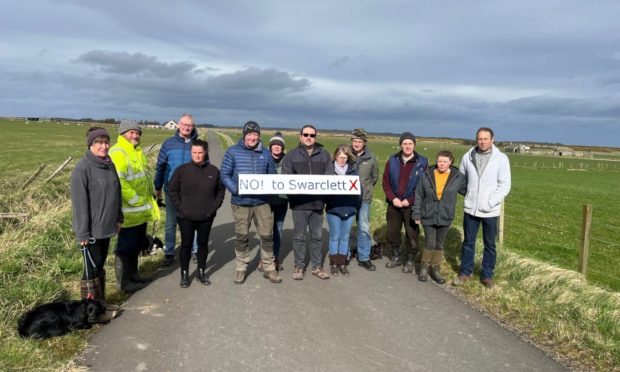A woman who went to the doctor concerned she had cancer again was right – but died after doctors delayed sending her to a specialist.
Patient A went to her Highland GP practice several times over a year, with the doctor considering she had gastroenteritis, an inflammation of the stomach and intestines.
At one point the woman, who had previously had breast cancer, asked for a concern she had the disease to be raised with the hospital so she would be seen.
She later died of cancer, which was eventually found in her kidney.
Now the Scottish Public Service Ombudsman (SPSO) has found there was a delay in sending that letter, which ultimately led to the cancer to be untreated.
The ombudsman also discovered referral letters to the hospital failed to have clinically important information.
The watchdog has now upheld a complaint lodged by Patient A’s sibling, and ordered the GP practice to apologise – and make improvements.
Tumour found on patient’s kidney
The SPSO report said:” A had previously been diagnosed with breast cancer a number of years ago.
“A became ill and attended the practice on several occasions over the year. The GP considered A had gastroenteritis, inflammation of the stomach and intestines.
“A’s symptoms persisted and A was referred to hospital for a colonoscopy, an examination of the bowel with a camera on a flexible tube. The request was rejected.
“A presented at the practice with the same symptoms on two further occasions and the practice made an urgent ‘suspicion of cancer’ referral to the health board.
“A scan showed a tumour attached to A’s right kidney.”
The woman died some months later.
Her sibling complained to the GP practice raising concerns about multiple attendances at the practice.
The complaint claimed that the practice failed to reasonably respond to A’s worsening condition and delayed or failed in carrying out appropriate investigations and associated tasks.
‘Failure’ to take tests and send referral letter promptly
The SPSO report read: “We took independent advice from a GP adviser.
“We found that initially there was no unreasonable delay in the practice recognising the seriousness of A’s symptoms and that the appropriate referrals for a colonoscopy and ultrasound scan were made.
“We also noted that it would not have been appropriate for the practice to have undertaken a carcinoembryonic antigen test, a blood test used to help diagnose and manage certain types of cancers and that the actions of administrative staff in filing away test results was appropriate and in line with established good practice.
“However, we found that there was a failure to include clinically important information in referrals and in consultation documentation, and that there was a delay in sending A’s suspicion of cancer letter.
“We also found that the practice should have considered undertaking some additional blood tests when it was clear A was deteriorating, or documented the awareness of any blood tests undertaken by the hospital during this period.
“Therefore, on balance, we upheld the complaint.”
Recommendations made
The GP practice has been told to apologise to the woman’s sibling.
In future, the report said: “Appropriate and timely blood tests should be considered when it is clear a patient is deteriorating in cases similar to A’s or awareness of any blood tests undertaken.
“Notes of consultations should include appropriate detail including a description of the length and progression of symptoms along with any potentially relevant past history.
Referral letters should include a clear history, examination and relevant background information.
“We have asked the organisation to provide us with evidence that they have implemented the recommendations we have made on this case by the deadline we set.”











Conversation